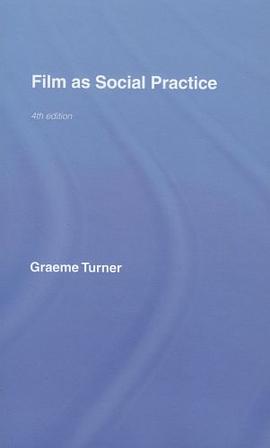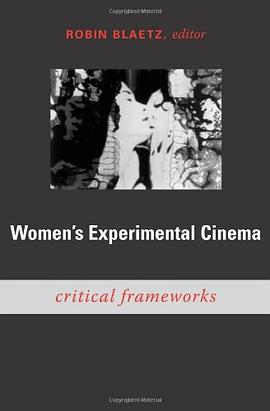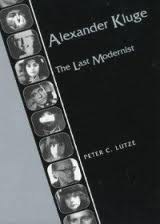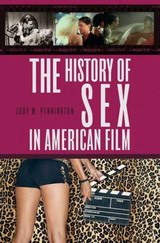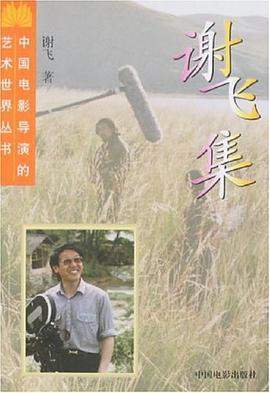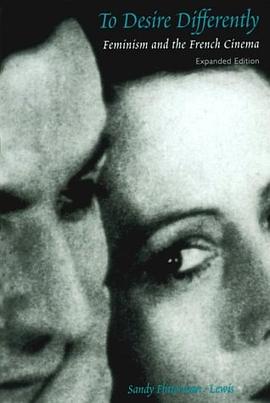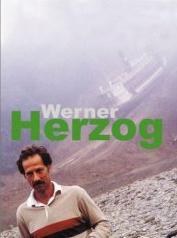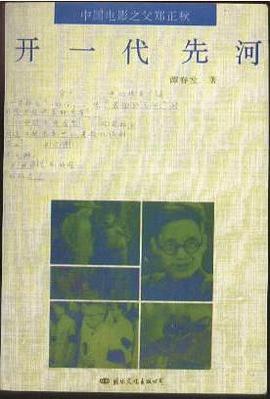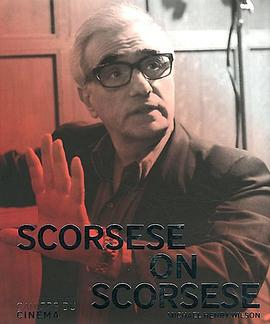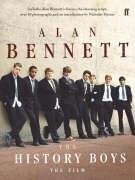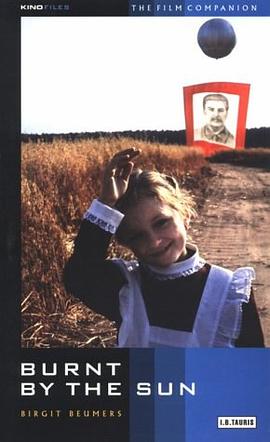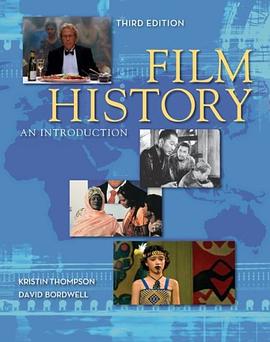

具体描述
Written by two of the leading scholars in film studies, Film History: An Introduction is a comprehensive, global survey of the medium that covers the development of every genre in film, from drama and comedy to documentary and experimental. As with the authors' bestselling Film Art: An Introduction (now in its eighth edition), concepts and events are illustrated with frame enlargements taken from the original sources, giving students more realistic points of reference than competing books that rely on publicity stills.
The third edition of Film History is thoroughly updated and includes the first comprehensive overviews of the impact of globalization and digital technology on the cinema. Any serious film scholar--professor, undergraduate, or graduate student--will want to read and keep Film History.
New Features
New final chapter, "Digital Technology and the Cinema," pulls together a wealth of recent research exploring the impact of new technology on film production, distribution, and publicity.
Revised organization splits the coverage of Latin America, the Asia-Pacific region, the Middle East, and Africa into two chapters, making the coverage of contemporary cinema in these regions more manageable.
More than 200 new film frames illustrate examples and concepts in the text providing students with more realistic points of reference, ensuring that what readers study on the page actually appears on the screen.
Updated examples and coverage throughout--particularly in Chapter 25 through 27--bring the text up to the present.
The authors' blog, Observations on film art and Film Art, includes a new essay on "Doing Film History" as well as weekly commentary on film from David Bordwell and Kristin Thompson. Visit: http://www.davidbordwell.net/blog/
作者简介
Kristin Thompson is an Honorary Fellow at the University of Wisconsin-Madison. She holds a master’s degree in film from the University of Iowa and a doctorate in film from the University of Wisconsin-Madison. She has published Eisenstein's Ivan the Terrible: A Neoformalist Analysis (Princeton University Press, 1981), Exporting Entertainment: America in the World Film Market 1907-1934 (British Film Institute, 1985), Breaking the Glass Armor: Neoformalist Film Analysis (Princeton University Press, 1988), Wooster Proposes, Jeeves Disposes, or, Le Mot Juste (James H. Heineman, 1992), Storytelling in the New Hollywood: Understanding Classical Narrative Technique (Harvard University Press, 1999), Storytelling in Film and Television (Harvard University Press, 2003), Herr Lubitsch Goes to Hollywood: German and American Film after World War I (Amsterdam University Press, 2005), and The Frodo Franchise: The Lord of the Rings and Modern Hollywood (University of California Press, 2007). She blogs with David at www.davidbordwell.net/blog. She maintains her own blog, "The Frodo Franchise," at www.kristinthompson.net/blog. In her spare time she studies Egyptology.
David Bordwell is Jacques Ledoux Professor Emeritus of Film Studies at the University of Wisconsin-Madison. He holds a master's degree and a doctorate in film from the University of Iowa. His books include The Films of Carl Theodor Dreyer (University of California Press, 1981), Narration in the Fiction Film (University of Wisconsin Press, 1985), Ozu and the Poetics of Cinema (Princeton University Press, 1988), Making Meaning: Inference and Rhetoric in the Interpretation of Cinema (Harvard University Press, 1989), The Cinema of Eisenstein (Harvard University Press, 1993), On the History of Film Style (Harvard University Press, 1997), Planet Hong Kong: Popular Cinema and the Art of Entertainment (Harvard University Press, 2000), Figures Traced in Light: On Cinematic Staging (University of California Press, 2005), The Way Hollywood Tells It: Story and Style in Modern Movies (University of California Press, 2006), and The Poetics of Cinema (Routledge, 2008). He has won a University Distinguished Teaching Award and was awarded an honorary degree by the University of Copenhagen. His we site is www.davidbordwell.net.
目录信息
Introduction: Film History and How It Is Done
Why Do We Care About Old Movies?
What do Film Historians Do?
Our Approach to Film History
History as Story
Part One: Early Cinema
1 The Invention and Early Years of the Cinema, 1880s-1904
The Invention of the Cinema
Early Filmmaking and Exhibition
2 The International Expansion of the Cinema, 1905-1912
Film Production in Europe
The Struggle for the Expanding American Film Industry
The Problem of Narrative Clarity
3 National Cinemas, Hollywood Classicism and World War I, 1913-1919
The American Takeover of World Markets
The Rise of National Cinemas
The Classical Hollywood Cinema
Small Producing Countries
Part Two: The Late Silent Era, 1919-1929
4 France in the 1920s
The French Film Industry after World War I
Major Postwar Genres
The French Impressionist Movement
The End of French Impressionism
5 Germany in the 1920s
The German Situation after World War I
Genres and Styles of German Postwar Cinema
Major Changes in the Mid- to Late 1920s
The End of the Expressionist Movement
New Objectivity
Export and Classical Style
6 Soviet Cinema in the 1920s
The Hardships of War Communism, 1918-1920
Recovery under the New Economic Policy, 1921-1924
Increased State Control and the Montage Movement, 1925-1930
Other Soviet Films
The Five-Year Plan and the End of the Montage Movement
7 The Late Silent Era in Hollywood, 1920-1928
Theater Chains and the Structure of the Industry
The Motion Picture Producers and Distributors of America
Studio Filmmaking
Films for African-American Audiences
The Animated Part of the Program
8 International Trends of the 1920s
"Film Europe"
The "International Style"
Film Experiments Outside the Mainstream Industry
Documentary Features Gain Prominence
Commercial Filmmaking Internationally
Part Three: The Development of Sound Cinema, 1926-1945
9 The Introduction of Sound
Sound in the United States
Germany Challenges Hollywood
The USSR Pursues Its Own Path to Sound
The International Adoption of Sound
10 The Hollywood Studio System, 1930-1945
The New Structure of the Film Industry
Exhibition Practice in the 1930s
Continued Innovation in Hollywood
Major Directors
Genre Innovations and Transformations
Animation and the Studio System
11 Other Studio Systems
Quota Quickies and Wartime Pressures: The British Studios
Innovation within an Industry: The Studio System of Japan
India: An Industry Built on Music
China: Filmmaking Caught between Left and Right
12 Cinema and the State: The USSR, Germany, and Italy, 1930-1945
The Soviet Union: Socialist Realism and World War II
The German Cinema under the Nazis
Italy: Propaganda versus Entertainment
13 France: Poetic Realism, the Popular Front and the Occupation, 1930-1945
The Industry and Filmmaking during the 1930s
Poetic Realism
Brief Interlude: The Popular Front
Filmmaking in Occupied and Vichy France
14 Leftist, Documentary, and Experimental Cinema, 1930-1945
The Spread of Political Cinema
Government- and Corporate-sponsored Documentaries
Wartime Documentaries
The International Experimental Cinema
Part Four: The Postwar Era, 1946-1960s
15 American Cinema in the Postwar Era, 1946-1960
1946/1947/1948
The Decline of the Hollywood Studio System
The New Power of the Individual Film
The Rise of the Independents
Classical Hollywood Filmmaking: A Continuing Tradition
Major Directors: Several Generations
16 Postwar European Cinema: Neorealism and its Context, 1945-1959
The Postwar Context
Film Industries and Film Culture
Italy: Neorealism and After
A Spanish Neorealism?
17 Postwar European Cinema: France, Scandinavia, and Britain, 1945-1959
French Cinema of the Postwar Decade
Scandinavian Revival
England: Quality and Comedy
18 Postwar Cinema Beyond the West, 1945-1959
General Tendencies
Japan
Postwar Cinema in the Soviet Sphere of Influence
People's Republic of China
India
Latin America
19 Art Cinema and the Idea of Authorship
The Rise and Spread of the Auteur Theory
Authorship and the Growth of the Art Cinema
Luis Buñuel (1900-1983)
Ingmar Bergman (1918- )
Akira Kurosawa (1910-1998)
Federico Fellini (1920-1993)
Michelangelo Antonioni (1912- )
Robert Bresson (1907-1999)
Jacques Tati (1908-1982)
Satyajit Ray (1921-1992)
20 New Waves and Young Cinema, 1958-1967
The Industries' New Needs
Formal and Stylistic Trends
France: New Wave and New Cinema
Italy: Young Cinema and Spaghetti Westerns
Great Britain: "Kitchen Sink" Cinema
Young German Film
New Cinema in the USSR and Eastern Europe
The Japanese New Wave
Brazil: Cinema Nôvo
21 Documentary and Experimental Cinema in the Postwar Era, 1945-Mid-1960s
Toward the Personal Documentary
Direct Cinema
Experimental and Avant-garde Cinema
Part Five: The Contemporary Cinema Since the 1960s
22 Hollywood's Fall and Rise, 1960-1980
1960s: The Film Industry in Recession
The New Hollywood: Late 1960s-Late 1970s
Opportunities for Independents
23 Politically Critical Cinema of the 1960s and 1970s
Political Filmmaking in the Third World
Political Filmmaking in the First and Second Worlds
24 Documentary and Experimental Film Since the Late 1960s
Documentary Cinema
From Structuralism to Pluralism in Avant-garde Cinema
25 New Cinemas and New Developments: Europe and the USSR Since the 1970s
Western Europe
Eastern Europe and the USSR
26 A Developing World: Continental and Subcontinental Cinemas since 1970 New Cinemas, New Audiences
African Cinema
Filmmaking in the Middle East
South America and Mexico: Interrupted Reforms and Partnerships with Hollywood Brazil
India: Mass Output and Art Cinema
27 Cinema Rising: Pacific Asia and Oceania since 1970
Australia and New Zealand
Japan
Mainland China
New Cinemas in East Asia
Part Six: Cinema in the Age of New Media
28 American Cinema and the Entertainment Economy: The 1980s and After
Hollywood, Cable Television, and Home Video
Concentration and Consolidation in the Film Industry
Artistic Trends
A New Age of Independent Cinema
29 Toward a Global Film Culture
Hollyworld?
Regional Alliances and the New International Film
Diasporic Cinema
The Festival Circuit
Video Piracy: An Alternative Distribution System
Fan Subcultures: Appropriating the Movies
30 Digital Technology and the Cinema
Digital Tools for Filmmaking
Distribution and Exhibition
New Media, Film, and Digital Convergence
· · · · · · (收起)
读后感
目录扫过,跳了几章看下来,感觉的确写得不错。 1. 思路清晰,内容翔实,立场客观中肯。 2. 可能电影人生平和列出作品介绍少一点,但只要上wiki一查就丰富了。 3. 再上Youtube或者影像资料馆看看影像资料就更加perfect啦。 4. 个人认为:关注以下三方面对保持思路清晰有帮助...
评分花了近三个月,终于将波德维尔的《世界电影史》第二版看完,由于本书体系庞大,卷帙浩繁,所以虽然看完一遍,也难说能够厘清本书的理论框架和学术体系,但是即使如此,还是收获颇丰,最起码形成了对世界电影发展史和当下的格局的印象。 从波德维尔这本电影史学著作中,我认为...
评分克里斯汀•汤普森、大卫•波德维尔夫妇二人合著的皇煌大作《世界电影史》俨然已是电影史学界的案头必备,被译成了数种文字在世界各地流传,其中也包括中文版(第一版)。笔者翻译的是本书的第二版。 在第一版的基础上,两位原作者做了大量的修订和校正,并增补了1980年代...
评分因为蛮厚的所以好像没什么人借,这本书对于电影的发展有蛮详细的叙述。不过如果只是喜欢看现代电影的人最好不要看,这本书适合专门研究电影的人,有一些专业术语和一些稍微繁琐的叙述(大概是翻译问题),不过是北大的未名出版社出版的,对于电影的学习很有好处。
评分用户评价
坦白讲,我原本对手册性质的历史书籍总是抱持着一种敬而远之的态度,总觉得它们过于注重年代和人名堆砌,缺乏灵魂。然而,这本书彻底颠覆了我的刻板印象。它的结构设计极具巧思,并没有采用僵硬的线性叙事,而是围绕几个核心的“范式转变”进行展开。比如,关于好莱坞黄金时代的分析,与其说是对制片厂制度的流水账描述,不如说是对“造梦工厂”内在权力结构和社会功能的一次解剖。作者犀利地指出了商业逻辑如何塑造了经典叙事,同时又如何在看似严格的规范下孕育出反叛的美学张力。最让我印象深刻的是它对“边缘”声音的关注,那些被主流史学略过的独立制片人、女性导演的声音,被重新打捞和审视,这极大地丰富了我对电影史的整体认知。它没有给我标准答案,而是提供了一套极具启发性的分析工具,让我学会如何质疑和深入挖掘那些被时间磨平的棱角。读完后,我感觉自己不再只是一个被动接受信息的观众,而是一个有能力去批判性审视电影起源和发展的参与者。
评分老实说,当我翻开这本厚重的书时,我担心自己会迷失在晦涩的术语和冗长的脚注中,毕竟电影史涵盖了百年的发展,内容庞杂。但这本书在保持学术水准的同时,做到了惊人的“可读性”。作者似乎深谙叙事节奏的把控之道,在严肃的史料分析之后,总会穿插一些极具画面感的轶事或幕后故事,瞬间将人拉回到那个特定的历史情境中。例如,描述早期电影配乐师们如何在现场即兴演奏以配合银幕上发生的场景,那种生动活泼的场景描写,让我仿佛能听到那些不和谐的钢琴声和观众的惊呼。这种平衡感处理得极其巧妙,既满足了专业人士对准确性的要求,又让业余爱好者能够轻松入门,并产生持续阅读的兴趣。它就像一位经验丰富的向导,既能带你深入危险的考古现场,也能在关键的休憩点为你奉上清爽的饮品,让你在学习知识的同时,享受到探索的乐趣,绝非那种只为堆砌史料而写作的冷冰冰的工具书。
评分这本关于电影史的著作,着实让我经历了一场穿越时空的奇妙旅程。作者的叙事功力非凡,仿佛带着我亲手触摸那些古老的胶片,聆听默片时代的喧嚣与寂静。从卢米埃尔兄弟那摇摇晃晃的早期影像,到梅里爱的魔幻装置艺术,每一个章节都饱含着对光影魔术最纯粹的热爱。我尤其欣赏他对技术革新如何驱动艺术表达的深入剖析。比如,对同步声音出现前后电影语言断裂与重塑的论述,不仅限于技术层面的介绍,更细致地描摹了演员表演方式、剧本结构乃至观众接受度的微妙变化。那种将技术史、产业史与美学史熔于一炉的写作手法,让原本可能枯燥的年代划分变得生动立体,充满了人性的温度和时代的烙印。阅读过程中,我常常停下来,想象当时观众初次面对银幕上活动影像时的震撼与迷惘,那种被创造力彻底征服的感觉,这本书完美地勾勒了出来。它不仅仅是一本教科书式的记录,更像是一封写给电影这门艺术的深情的情书,细节考究,脉络清晰,让人在历史的洪流中,清晰地看到每一帧画面背后的血汗与灵光。
评分这本书的阅读体验,可以说是一种智识上的不断“撞击”。作者的学术功底深厚毋庸置疑,但最令人称道的是他如何将深奥的理论概念,转化为触手可及的影像分析案例。我特别喜欢其中几章对蒙太奇理论发展历程的梳理,从普多夫金到戈达尔,中间穿插了对冷战时期欧洲先锋电影运动的比较研究。那种跨文化、跨代际的对话感非常强烈。文字的密度非常高,信息量如同飓风过境,我需要反复阅读才能完全消化其中的层次感。但这种高密度并非故作高深,而是源于作者对材料的精炼和提炼。我发现,每一次重新回顾某个章节,都会有新的理解冒出来,仿佛剥开了一层又一层的洋葱皮,最终触及到电影艺术最核心的秘密。对于那些追求学术严谨性和思辨深度的读者来说,这本书无疑是一座宝库,它要求你拿出足够的专注力和思考力,但回报是巨大的,它将永久性地改变你观看电影的方式,让你看到镜头背后隐藏的哲学命题。
评分这本书最让我感到惊喜的,是它对于全球视野的强调,而非仅仅局限于好莱坞或西欧的叙事。我一直渴望一本能更全面展现世界电影多元声音的著作,而这本正中下怀。它用相当大的篇幅探讨了亚洲电影,尤其是日本“松竹贵族”的形成及其对后世风格的影响,以及拉丁美洲“第三电影”思潮的诞生与衰落。作者的笔触在不同文化语境间游走自如,毫不偏颇,清晰地勾勒出不同地域在面对殖民、现代化、身份认同等议题时,电影语言所采取的不同策略和表达的独特美学。这种广阔的视野,让我对电影艺术的包容性和适应性有了更深刻的理解。它提醒我们,电影史不是一条单行道,而是无数条平行且相互影响的河流交织而成的宏大水系。阅读它,就像站在世界的制高点,俯瞰人类集体想象力的结晶,那种心胸开阔、豁然开朗的感觉,是其他许多专注于某一地域的专著所无法比拟的。
评分趣味性和专业性均备的教科书。受益匪浅。
评分犹豫很久还是没有买的最爱的书之一,大部分章节内容可以倒背如流
评分犹豫很久还是没有买的最爱的书之一,大部分章节内容可以倒背如流
评分阅。
评分比较全的教科书,被海航给弄丢了~
相关图书
本站所有内容均为互联网搜索引擎提供的公开搜索信息,本站不存储任何数据与内容,任何内容与数据均与本站无关,如有需要请联系相关搜索引擎包括但不限于百度,google,bing,sogou 等
© 2026 book.quotespace.org All Rights Reserved. 小美书屋 版权所有

